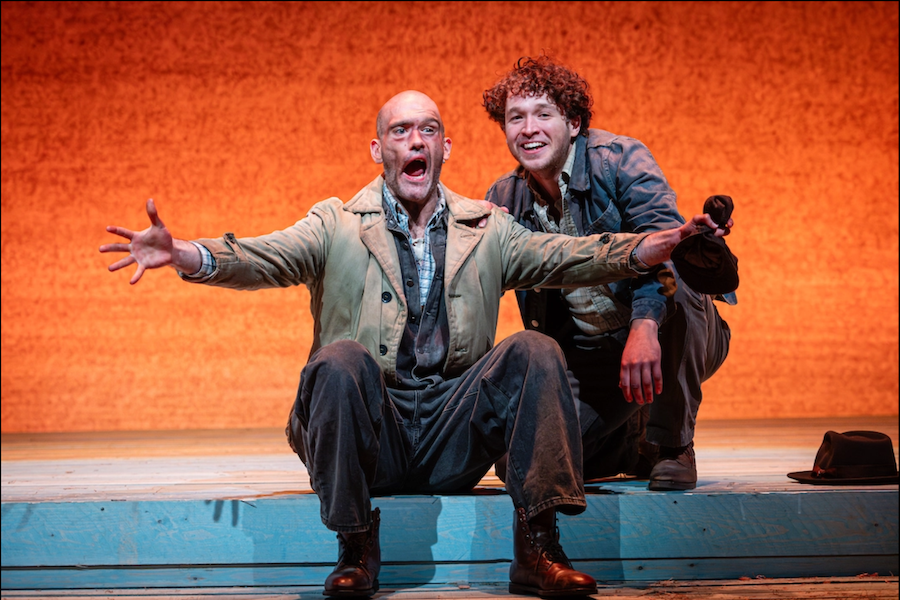Castlefield Viaduct reveals huge plans to extend the sky park as far as Salford and Trafford
- Written by Thom Bamford
- Last updated 10 months ago
- City of Manchester
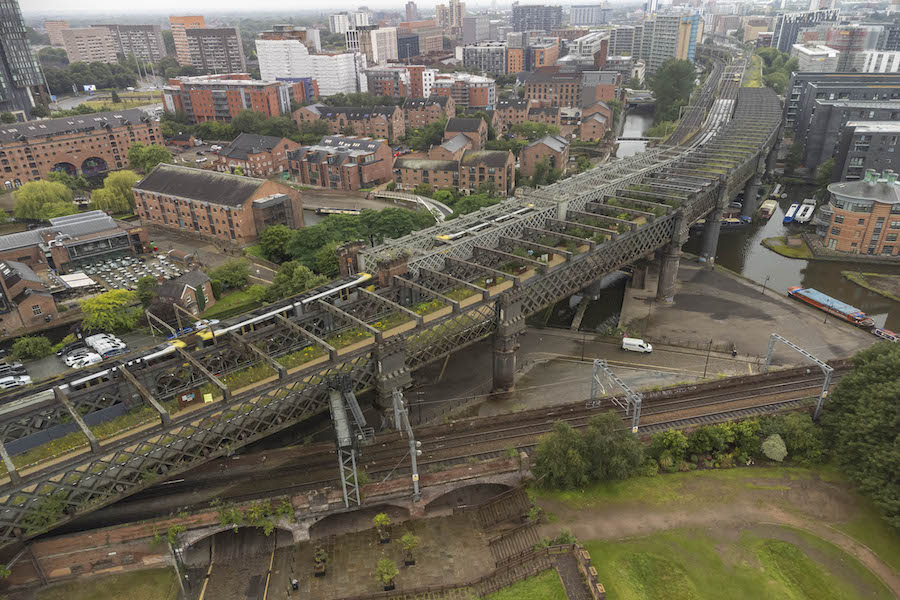
Manchester is buzzing with excitement over the future of the Castlefield Viaduct, a 125-year-old Victorian Grade II listed structure turned sky park.
The National Trust, in partnership with the local community and the design studio BDP, has unveiled ambitious plans to transform this historic landmark into an expansive urban green space, which has been fondly nicknamed, Manchester’s smile.
They are hoping that they can extend the project to nearly 1km in length as the final size, but have confirmed a 350m extension to the loved urban park.
Here’s a glimpse into what this project entails and what it means for the city.
Castlefield Viaduct development
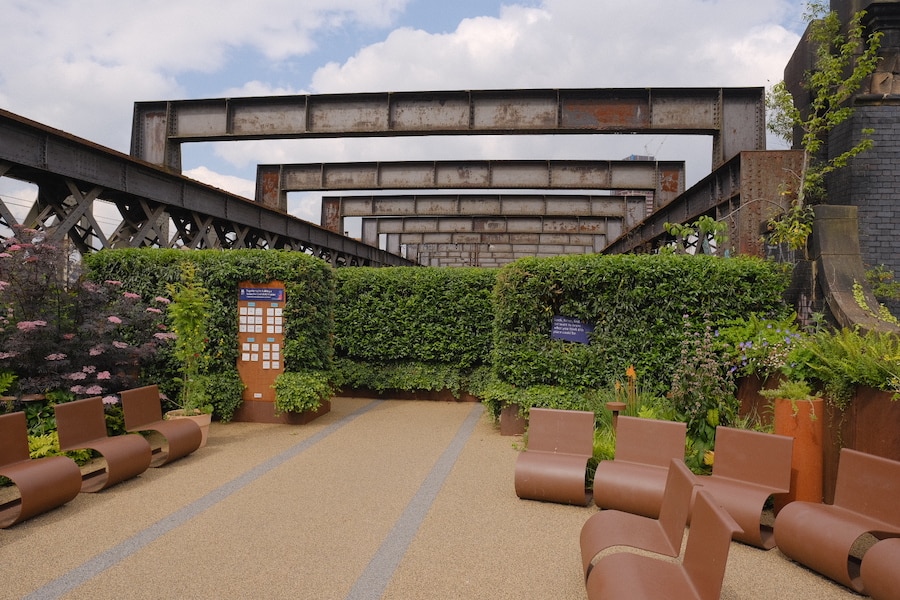
The National Trust’s “Vision” for Castlefield Viaduct is the result of extensive public consultation.
Over 1,000 local residents participated in workshops, events, and an online survey to share their ideas and feedback.
The response was overwhelmingly positive, with 99% of visitors expressing a desire for the viaduct to become a permanent feature in Manchester.
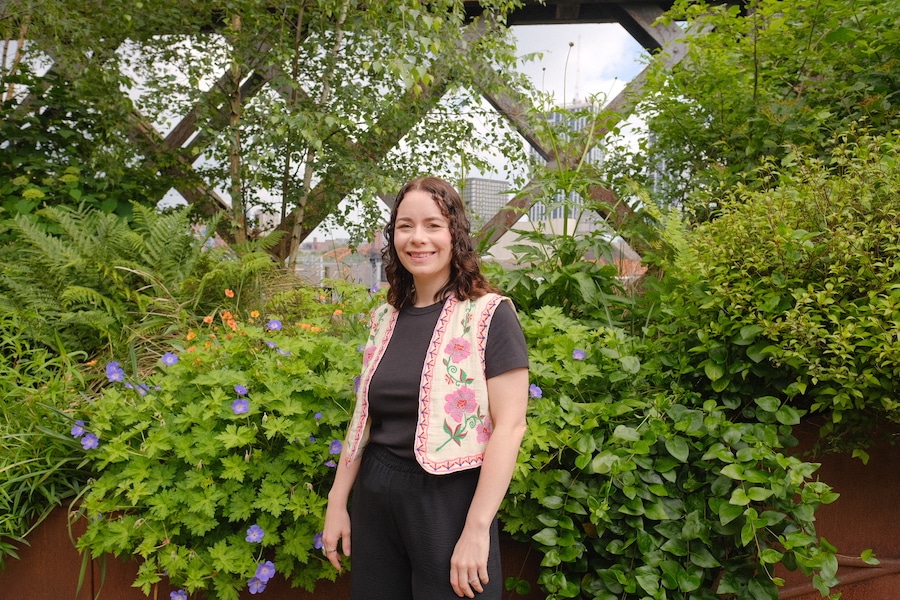
“We’ve had over 100,000 visitors since we opened,” says Nicola Jacques, Project Manager at the National Trust.
“People want more green space in the city, and that’s exactly what we’re aiming to provide with the viaduct.
“What we’re building here is for the people of Manchester and the people of Castlefield. So we want it to reflect what they want to see.
“For us, that was the reason why the National Trust took the decision to appoint a design team to develop a master plan that shows us what’s possible up here.
“It’s so clear from the feedback from people of the city that they want this space, they need this green space in Manchester.”
Phase 2: Extending the Sky Park
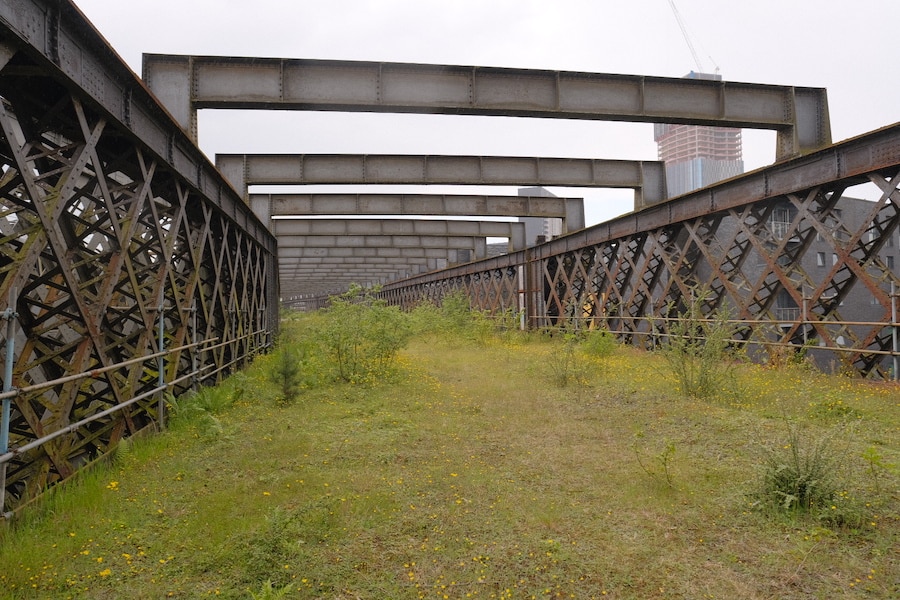
Work on Phase 2 of the viaduct project is expected to begin in 2025.
This phase will extend the current 150-meter walkway to the full 330 meters, providing a continuous green pathway from Castlefield to Salford and Trafford.
The design team is also exploring the possibility of adding a second entry and exit point towards Mancunian Way to improve access and allow more people to enjoy the space.
Currently, visitors walk through a series of spaces and gardens before reaching an untouched section of the viaduct beyond a glass wall. The National Trust and its partners are focusing their efforts on transforming this section next.
A journey through Manchester’s heritage
The redeveloped viaduct will feature seven distinct “character” areas, each reflecting different aspects of Manchester’s heritage and community spirit:
- Castlefield Platform: A welcoming area where visitors can start their journey.
- Global Garden: A playful, green space designed for relaxation and enjoyment.
- Village Hub: An area dedicated to community growing and engagement.
- Strawberry Garden: Inspired by the 19th-century lost recreation gardens of Cornbrook.
- The Lookout: Offering open-air views of the city, free from overhead iron girders.
- Cottonopolis: Paying homage to Manchester’s industrial past.
- Pomona Walk: A treetop path leading visitors towards Pomona Island.
These areas will be connected by winding paths, encouraging visitors to slow down and enjoy the natural beauty and historical significance of the viaduct.
Community and Funding
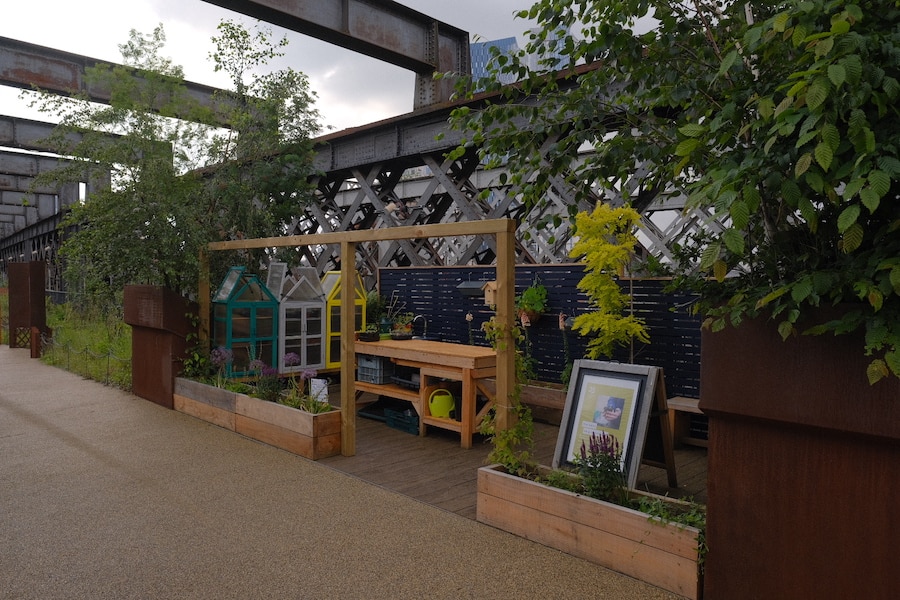
The project’s success relies heavily on community involvement and support.
Local groups like Sow the City and Hulme Community Garden have already taken up residence on the viaduct, with more expected to join as the project progresses.
The National Trust is actively seeking investors and funders to support the plans.
While a significant portion of funding has been provisionally secured, additional investment is needed to bring the vision to life.
Corporate companies are invited to pledge their support by donating on-site or via the National Trust website.
If you’d like to know more about donating you can email them here
A Collaborative Effort
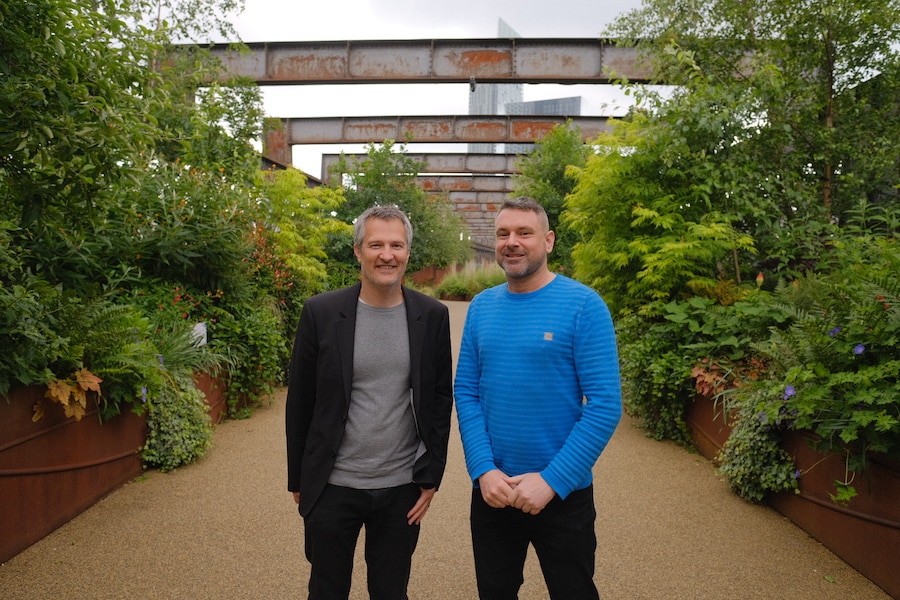
One of the key strengths of the Castlefield Viaduct project is its collaborative nature.
The National Trust and BDP have worked closely with local communities, stakeholders, and future users to ensure that the design reflects the desires and needs of the people it serves.
“We’ve worked closely with the communities, capturing their ideas and thoughts to form our vision moving forward,” says Daryl Wilson, a landscape architect at BDP.
“It’s been a co-design process, which has been very exciting and engaging.”
Callum McGowan, Chair of the Castlefield Forum, echoes this sentiment. “It’s been a project designed by the people, for the people. We’ve had close to 400 people go through consultation, from young children to adults. This project is for everyone, and we’re tremendously excited to see it come to life.”
You can find out more about Castlefield Forum by clicking here
Overcoming Challenges
Redeveloping a piece of industrial architecture into a vibrant green space is no small feat. The project faces financial and logistical challenges, but the National Trust and its partners are determined to overcome these hurdles.
“The very clear principle from day one has been that it will be free forever for everyone,” McGowan emphasised.
“The National Trust is not bankrolling the entire development, so they are looking for multiple rounds of funding from the public sector, private sector, and philanthropy. It’s a multifaceted fundraising approach.”
Looking Ahead
The Castlefield Viaduct is set to become a new thread of green space in Manchester’s urban fabric, providing a tranquil escape from the city’s hustle and bustle. Whether you’re taking a lunch break, walking the dog, or simply looking for a peaceful spot to relax, the viaduct will offer something for everyone.
“We aim to slow people down and help them decompress,” says McGowan. “It’s exciting to turn a rusting relic into something with a brand new purpose. The purpose is to provide connectivity, except now it’s more measured and controlled.”
With stunning views, diverse character areas, and a strong community focus, the Castlefield Viaduct promises to be a cherished green space for Manchester residents and visitors alike.
As work on Phase 2 progresses, the vision for this historic structure continues to grow, bringing hope and excitement for more green spaces in the city.
- This article was last updated 10 months ago.
- It was first published on 6 June 2024 and is subject to be updated from time to time. Please refresh or return to see the latest version.
Did we miss something? Let us know: press@ilovemanchester.com
Want to be the first to receive all the latest news stories, what’s on and events from the heart of Manchester? Sign up here.
Manchester is a successful city, but many people suffer. I Love Manchester helps raise awareness and funds to help improve the lives and prospects of people across Greater Manchester – and we can’t do it without your help. So please support us with what you can so we can continue to spread the love. Thank you in advance!
An email you’ll love. Subscribe to our newsletter to get the latest news stories delivered direct to your inbox.
Got a story worth sharing?
What’s the story? We are all ears when it comes to positive news and inspiring stories. You can send story ideas to press@ilovemanchester.com
While we can’t guarantee to publish everything, we will always consider any enquiry or idea that promotes:
- Independent new openings
- Human interest
- Not-for-profit organisations
- Community Interest Companies (CiCs) and projects
- Charities and charitable initiatives
- Affordability and offers saving people over 20%
For anything else, don’t hesitate to get in touch with us about advertorials (from £350+VAT) and advertising opportunities: advertise@ilovemanchester.com


Review: Tambo & Bones at HOME is ‘ambitious, bold, gutsy…. and terrific’

Review: JB Shorts 26 at 53two is ‘a five-star showcase of northern talent’









